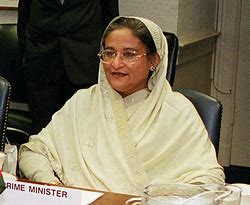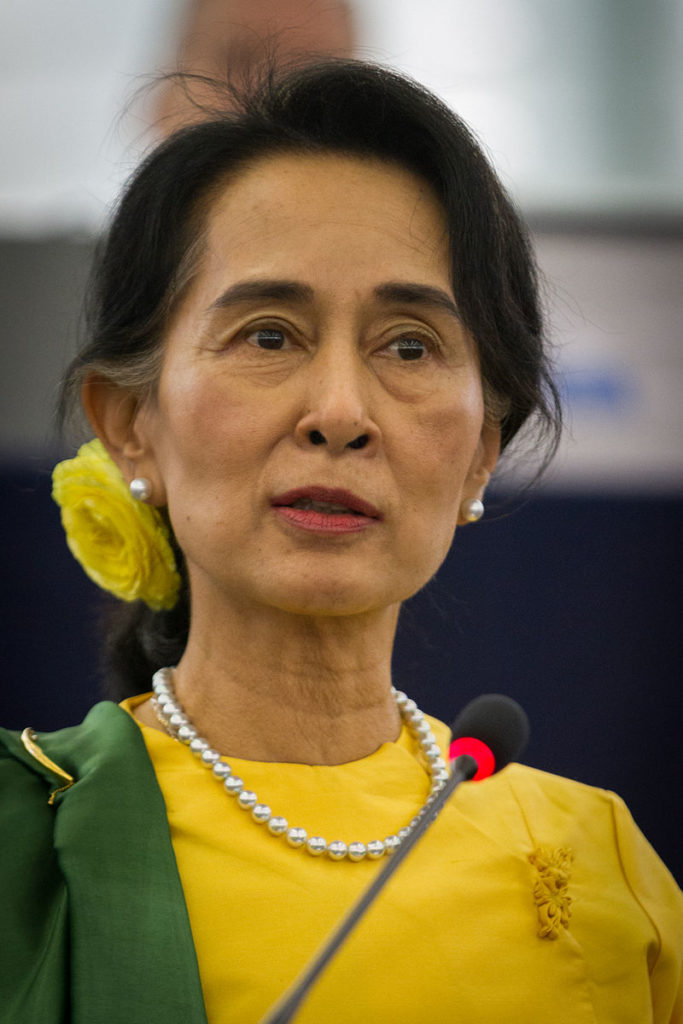Syed Badrul Ahsan, Visiting Fellow, Institute of Commonwealth Studies, and Editor in Charge, The Asian Age, Dhaka
For Bangladesh, it is that old dilemma: damned if you do, damned if you don’t. The Rohingya issue is not likely to go away any time soon. A hint of that comes through the flow of about 200 new refugees making their way to Bangladesh from Myanmar’s Rakhine state in the aftermath of fresh clashes between the country’s security forces and elements resisting the atrocities perpetrated on the Rohingyas.

The new influx comes on the heels of the trip to the Rohingya camps along Bangladesh’s coastal belt by Angelina Jolie, the actor and special envoy to the UN High Commissioner for Refugees. Compounding the issue is the statement by Bangladesh’s new Foreign Minister A.K. Momen to the effect that the door is now closed to any further entry of the refugees, and that it is now time for other states to consider providing shelter to the fleeing Rohingyas.
Lest it be forgotten, as many as 800,000 Rohingyas, perhaps more, are now in refugee camps in Bangladesh, whose government plans to create a permanent shelter for them on an island known as Bhashan Char. The plan has been condemned given the island’s vulnerability to seasonal tidal surges, but the authorities have dismissed this criticism on the grounds that the entire coastal belt is prone to cyclones and the like.
The Rohingya dilemma for Bangladesh is compounded by the fact that the Myanmar authorities remain indifferent to any talk of the refugees going back to their now obviously ravaged homes in Rakhine state. For many in Bangladesh, a spark of hope was generated recently through Myanmar and Bangladesh ‘s agreement on the voluntary return of refugees to Rakhine. The move came under fire from international bodies and observers who stressed it did not guarantee proper rehabilitation measures for the returnees. It is a dilemma which Prime Minister Sheikh Hasina and her government have yet to resolve.
The Bangladesh government has been wary of letting in the Rohingyas owing to some not so happy experiences in the past. In the 1990s, a very large number of Rohingyas, fleeing persecution in Myanmar — and it was a time when the Myanmar military was in absolute control of the country — entered Bangladesh and made their home in the coastal regions. Indeed, it is not too hard to find Rohingyas in the Cox’s Bazar region in south-east Bangladesh. While a very small number of these earlier refugees returned home as a result of local and international measures, a very large segment of as many as 500,000 Rohingyas remain in the country. That is in addition to the 800,000 who have entered the country since 2015.

The appeals made to the Bangladesh authorities, even by some Bangladeshis themselves, for refuge to be granted the fleeing Rohingyas, often have had strong emotional connotations. It has been argued that Bengalis should look back at the history of their own persecution by the Pakistan army in 1971, when 10 million Bengalis crossed the frontier into India and were provided with shelter and assistance for over nine months, while the country’s War of Liberation was prosecuted. To this argument, the response from those who would like the Rohingyas to be taken back to Myanmar has been simple: back in 1971, Indian moral and material assistance held out the assurance for Bangladesh’s people that their country would soon be liberated and that all the refugees would be in a position to return home.
What has certainly confounded Bangladesh’s government and people is the absolute silence of Myanmar’s democracy icon Aung San Suu Kyi on the issue. Media reports and comments in Bangladesh have roundly condemned her refusal to take a humanitarian stand on the Rohingya issue, with irate writers demanding that she be stripped of her Nobel Prize for Peace. In her years in incarceration, Suu Kyi enjoyed mass adoration in Bangladesh and it was only natural to expect, once her National League for Democracy won the election and assumed power, in however minimal a manner, that she would cause a wholesale change to be brought into the Rohingya situation. That she has said not a word, that indeed she has carefully stayed clear of addressing these persecuted people as Rohingyas, has rankled and has convinced people in Bangladesh that the Myanmar military continues to call the shots and that Suu Kyi is in office but not in power.

In the present case, argue this group of people, the 1971 analogy is not appropriate. For one thing, the Rohingyas are not engaged in a war of independence. For another, conditions do not exist for Bangladesh to pursue a military solution to the Rohingya issue with Myanmar. Besides, the Yangon authorities have been adamant for decades that the Rohingyas are not Myanmar citizens, that indeed they are Muslims, and Bengalis to boot, who have infiltrated into Myanmar from Bangladesh.
And yet very large sections of Bangladesh’s people, including those who argue against letting the Rohingyas in, are in a state of profound moral agonizing about this point. Images of Bangladesh’s coast guard and its navy turning away Rohingyas, when they first began to approach Bangladesh’s shores, were deeply unsettling for people.
Bangladesh’s people, even as they sympathise with the Rohingyas, are unable to ignore bitter realities of the recent past. From among those Rohingyas who have been in Cox’s Bazar and Chittagong for the past two decades has emerged a new class of Islamist militants hostile to the growth of liberal politics in the country. Most of these new militants have been indoctrinated by such fanatical groups as the Jamaat-eIslami. Other elements of bigotry have been in the picture as well. None of this has been pleasing to the government and the people of Bangladesh. Add to that past corruption involved in a provision of Bangladeshi passports illegally to large groups of Rohingyas, who then made it to the Middle East as wage earners. That would have been overlooked had it not been for many of the Rohingyas getting booked for criminal activities in Saudi Arabia and other countries.
As the old cliché goes, Bangladesh is on the horns of a dilemma. ***

Recent Comments